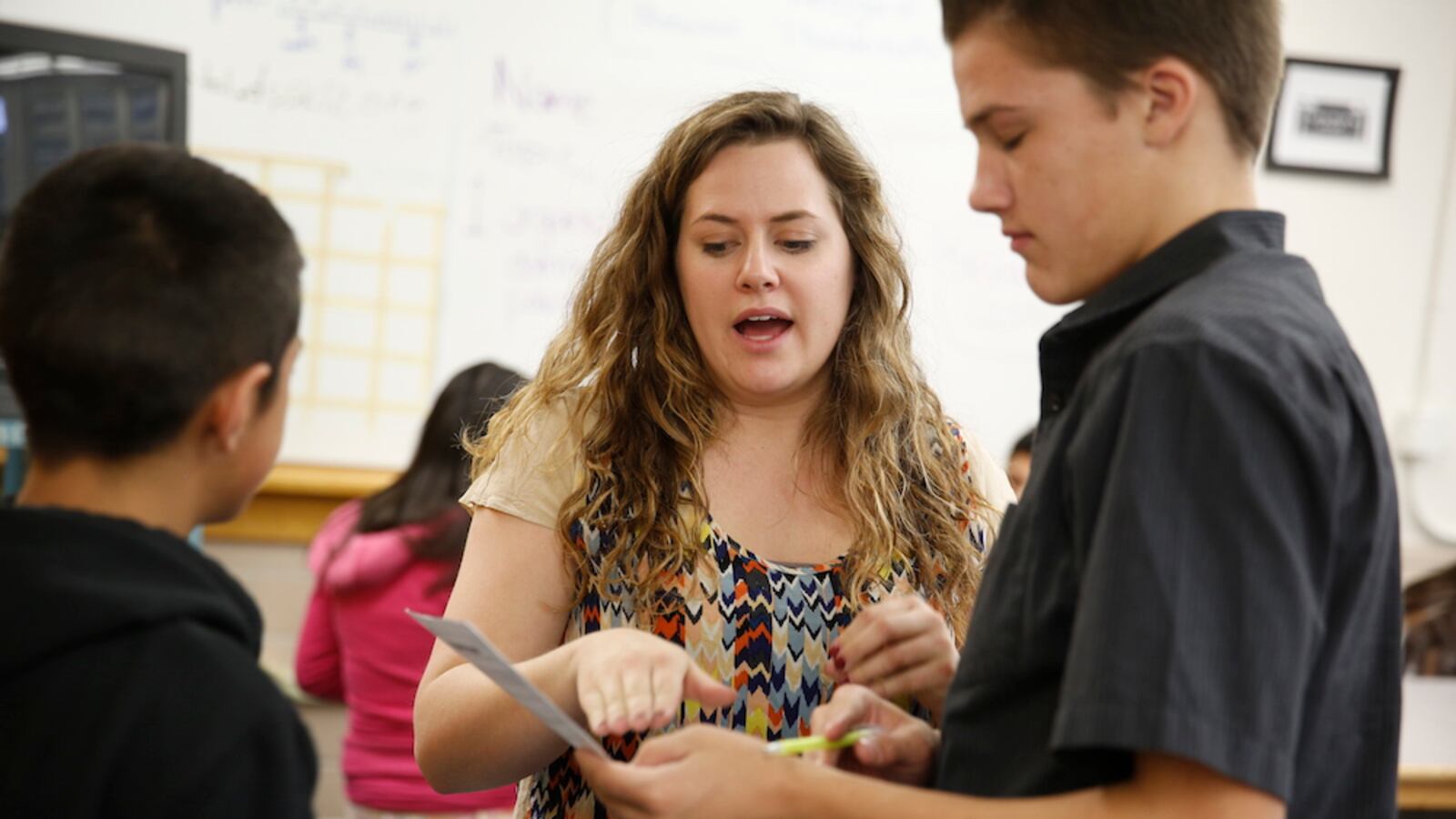Of New York City’s roughly 75,000 teachers, those who have earned highly regarded credentials from a teacher-quality group known as the National Board could fit in a single auditorium.
There are only 207 National Board-certified teachers in New York City, and just 1,600 across the state. By contrast, in Washington, a state with fewer than a quarter of the teachers in New York, there are more than 7,200 National Board-certified teachers.
But New York’s number could soon get a big boost from the state, which received federal grant money to help more teachers earn the credentials, and from a group of National Board-certified teachers in the city that has committed to swelling its ranks.
The campaign comes at time when ensuring teacher quality is a top policy concern, but efforts to enact that goal through state-imposed teacher evaluations have faced some resistance. Meanwhile, teachers who complete the voluntary National Board certification process, which can take years, have been shown to raise student achievement.
“How do you take teachers who have gone through this incredibly rigorous, performance-based process and capitalize on their expertise?” said Geneviève DeBose, a National Board-certified teacher from the Bronx who now works for the organization. “There’s a lot more we can be doing.”
The nonprofit National Board for Professional Teaching Standards emerged from an education task force in the 1980s that aimed to raise the quality the instruction by creating higher teaching standards. Unlike today’s teacher evaluations, which are mandatory measures meant to spur teacher improvement and root out poor performers, the National Board’s certification process is voluntary and open only to teachers with at least three years experience.
Teachers who want those credentials must pass several exams and submit classroom videos, student work, and written reflections to prove they meet the National Board’s standards. That process can take several years, with less than half of candidates earning their credentials on the first attempt, according to DeBose.
The National Board recently won a $15 million federal grant to help New York and a handful of other states and large school districts urge more teachers in high-needs schools to earn the credentials and to guide teachers through the process. The grant winners must also help National Board-certified teachers become instructional leaders in their schools, which could include mentoring peers, heading up departments, or running model classrooms, DeBose said.
Beginning next month, New York districts and schools will be able to apply for funding to do this. Five winners will be selected.
Their task will be to “demystify” and spell out the benefits of the certification process, which is still unfamiliar to many educators, said Stephanie Wood-Garnett, an assistant commissioner in the State Education Department.
In New York State, teachers can receive a grant to cover the $2,500 cost of certification. Completing that process also relieves teachers from the 175 hours of professional development and a master’s degree normally required to earn a permanent teaching license. (Some teachers have also proposed a rule change to allow their National Board work to count for a portion of their evaluations while they are in the certification process, which would need local district and union approval, and possibly legislative signoff.) In New York City, National Board certification bumps teachers up to the highest pay grade.
More importantly, the certification process pushes experienced educators to reflect on and refine their practice, said Wood-Garnett. A 2012 Harvard University study found that Los Angeles students who were taught by National Board-certified teachers outperformed their peers.
“Any teacher I’ve ever worked with, they always say, ‘It’s the best professional development I’ve ever had in my career,’” Wood-Garnett said.
The credentials also validate teachers’ hard-won expertise and connect them with like-minded colleagues, said Lorraine Scorsone, one of the city’s first National Board-certified teachers. For more than a decade, Scorsone has led a support program for certification candidates run by the city teachers union. The candidates watch the videos and read the essays their peers will submit to the National Board, then ask probing questions.
“Through answering those questions,” Scorsone said, “a gem will come out.”
In December, about three-dozen National Board-certified teachers met in the city and discussed ways they could get more teachers to join them. They considered enlisting their principals as recruitment allies, hosting a citywide training conference, and mentoring colleagues through the certification process.
Pauline Sawyers, a National Board-certified teacher at I.S. 52 in Upper Manhattan, has already started that work. She is guiding six colleagues at her school through the process, which she said amounts to much more than just a portfolio and some tests.
“It’s one of those things,” Sawyers said, “that really helps you see your profession in a new light.”

